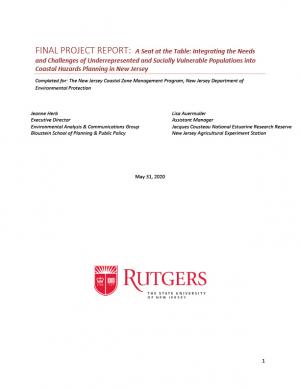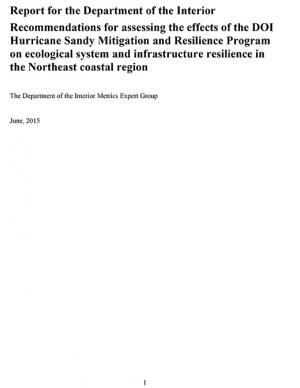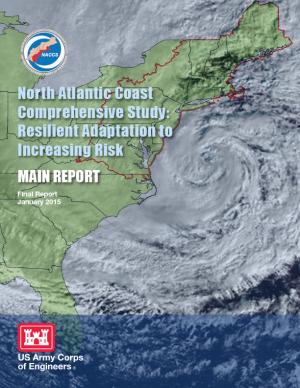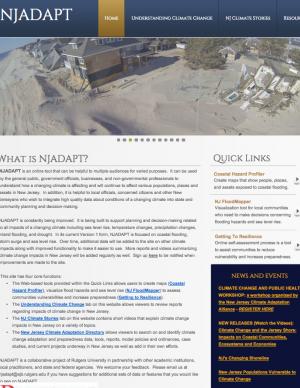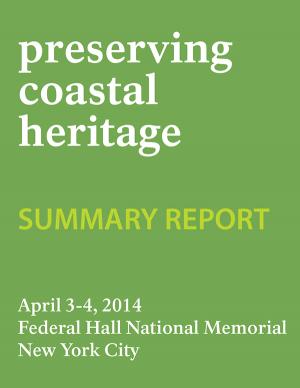Access a range of climate-related reports issued by government agencies and scientific organizations. Browse the reports listed below, or filter by scope, content, or focus in the boxes above. To expand your results, click the Clear Filters link.
While all people living in the United States are affected by climate change, some communities and some populations are more vulnerable to changing climate conditions than others. This final report from a NOAA-funded project in New Jersey highlights current evidence regarding impacts of changing climate-related coastal hazards on socially vulnerable populations, identify opportunities to address needs of socially vulnerable populations as part of coastal community climate resilience planning, and outlines possible options for coastal management policy that may enhance efforts to address needs of socially vulnerable populations as part of coastal community resilience efforts.
This report—the first phase of the Department of the Interior (DOI) assessment effort for Hurricane Sandy projects—was developed for DOI by a metrics expert group of physical and ecological scientists and socioeconomic experts who recommended performance metrics for measuring changes in resilience resulting from the DOI-sponsored projects. It identifies natural and artificial coastal features most affected by Hurricane Sandy along the Northeast coast—such as marshes, beaches, and estuaries—and recommended metrics that would indicate resilience change in those features.
This report details the results of a two-year study to address coastal storm and flood risk to vulnerable populations, property, ecosystems, and infrastructure affected by Hurricane Sandy in the United States' North Atlantic region. The study was designed to help local communities better understand changing flood risks associated with climate change and to provide tools to help those communities better prepare for future flood risks. It builds on lessons learned from Hurricane Sandy and attempts to bring to bear the latest scientific information available for state, local, and tribal planners.
NJADAPT is a collaborative effort consisting of scientists and data managers in academia, government, the private sector, and the NGO community who have developed a strategic plan for a New Jersey platform to host and apply climate science and impacts data. This effort has been supported by the New Jersey Recovery Fund, the New Jersey Coastal Management Program, and NOAA.
In April 2014, the National Park Service (NPS) convened a select group of leaders in the fields of planning, architecture, landscape architecture, historic preservation, archeology, science, and park and cultural resource management to participate in a planning session entitled Preserving Coastal Heritage. This summary report provides the recommendations and feedback that emerged over the course of the two-day work session, along with highlights from the presentations and remarks. Case studies include four sites in New York and New Jersey. The Preserving Coastal Heritage work session was part of an NPS effort to develop a cultural resources climate change response strategy.

